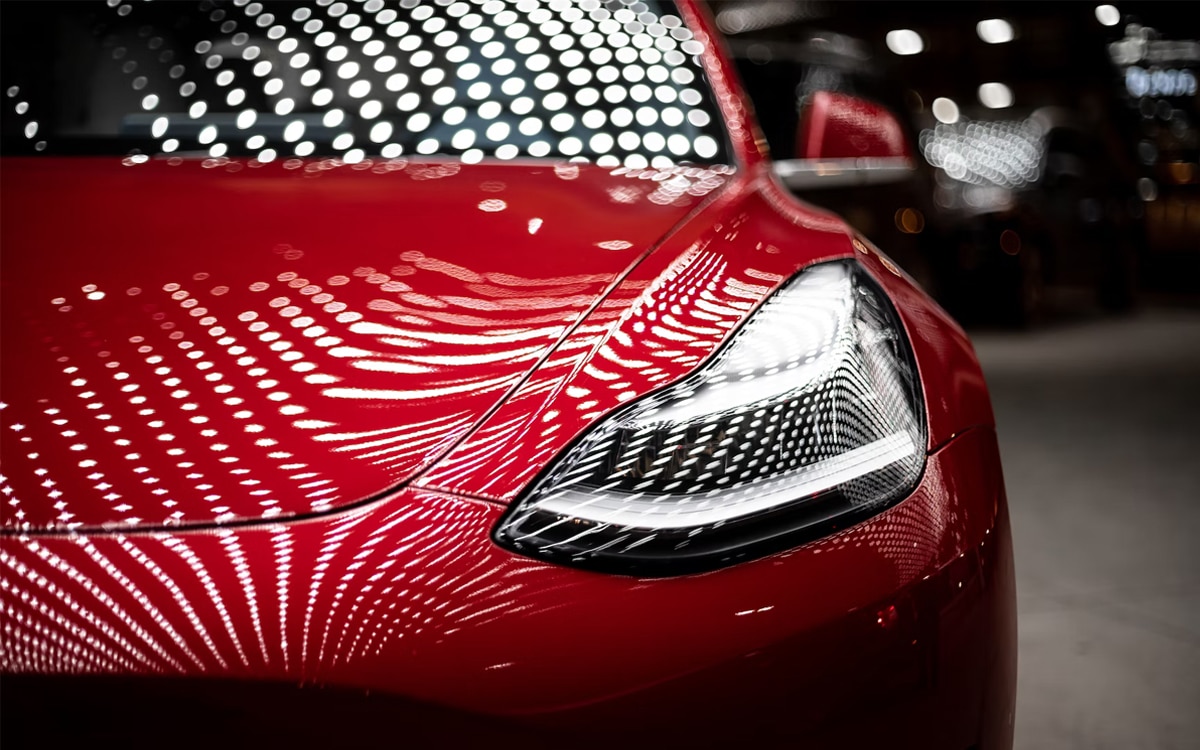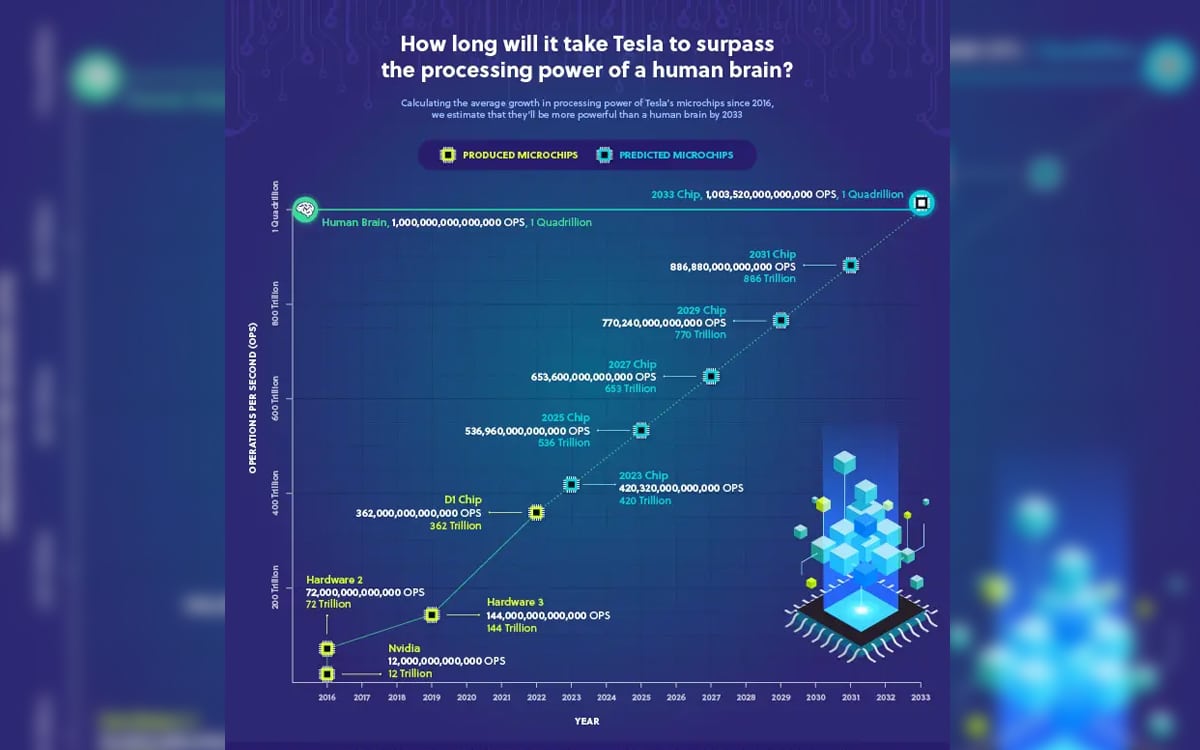
What if Tesla cars got smarter than humans? The thing is not impossible, according to a recent study by Vanarama. Based on the evolution of the computing power of the chips integrated into the manufacturer’s vehicles, the organization predicts that the course will be crossed as early as 2033.
The old science fiction fantasy that predicts that machines will one day become smarter than their creators may well come true sooner than expected. A recent Vanarama study is indeed particularly instructive on this subject. Taking the example of Tesla cars, and in particular their new D1 processor, the predictions are as exciting as they are frightening.
To understand how Vanarama formulated his estimate, you have to understand how the “intelligence” – understand the computing power – of the processors is evaluated. This is measured in the number of operations performed per second. The human brain, for example, is capable of performing a quadrillion (one following 1 of 15 zeros) operations per second. As for the famous D1 chip, it is still a long way off with “only” 362 trillion operations per second.
Related — Tesla: A More Affordable Electric Car Is in the Pipeline, Says Brand Executive
In 11 years, your Tesla will be smarter than you
In other words, the D1 chip is still only at 36% of the capacity of the human brain. At first sight, nothing to impress us then… unless we analyze the evolution of Tesla chips from year to year. Thus, on average, the latter are 486% more powerful each year than their respective previous version. For comparison, the 2016 Nvidia chip had a computing capacity of 12 trillion operations per second.
On the same subject —The new Tesla Model 3 and Model Y 2022 are more powerful thanks to an AMD Ryzen chip
If the processors used by Tesla continue on this path, it means that its cars will have surpassed human intelligence by 2033, in just 11 years. Interestingly, this would mean that the builder would reach the same level of maturity as a human brain in just 17 years, where it takes our species 25 years. Let the most frightened be reassured: these processors should (in theory) only be used to develop Tesla’s ambitions in terms of autonomous driving.



